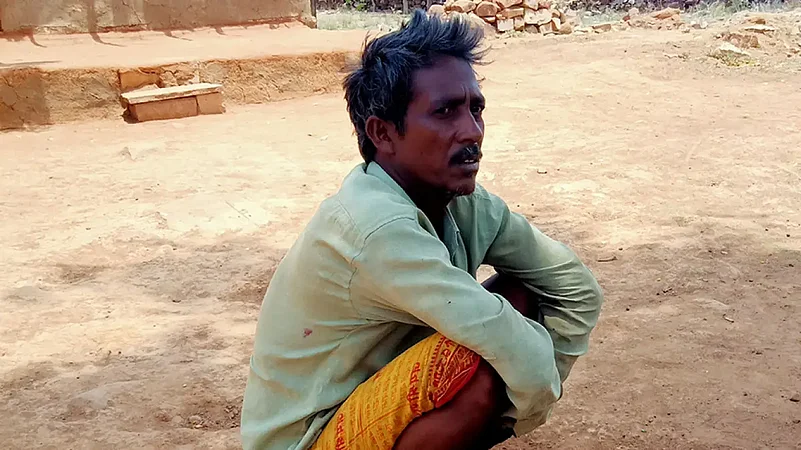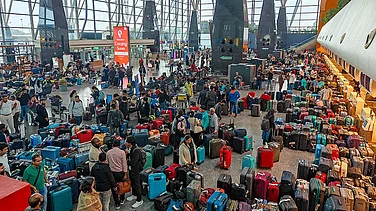Puran didn’t know until it happened that he had to rush back to his village Kunwarpur in Shivpuri District along with his entire family. It was March 24, 2020, India was in Lockdown and Puran was smoking Bidi (cheap Cigarette). With each drag he has some sort of relief, that he is not stuck in Agra. But this is not his only concern.
“I am not sure, will I be finding bidi anymore in this lockdown,” he said with worried eyes. Puran is a Sahariya, a member of Particularly vulnerable tribe and a footloose migrant, drifting from one place to another in search of work. Every year, these migrant labourers go to cities like Agra, and Gwalior to harvest potatoes.
Usually, it is a nice and fun journey, when Puran and his friends along with their family go to different cities to harvest potatoes. A contractor known to Puran, who is from a nearby village, would hire them. “He is a good man; we go with every year. He arranges food and stays for us.” But in 2020, Puran was paid wages in september.
There are around 12 families of the Sahariya tribe living in Sahrana, a ghetto for members of the Sahariya tribe. In 2020, when the first lockdown was announced, it was also a time of Fad, a sort of seasonal employment for Sahariyas when a contractor would come to buy Tendu leaves, which members of the Sahariya tribe would collect from Jungle.
In normal times, each member of Puran’s family would earn between Rs 2,000-4,000 per season, but it was never a consistent income, “The prices we get differ from seas on to season; at times we get Rs 250 for a bundle of 100 leaves, sometimes as little as Rs 80 for the same.” He told this reporter in 2020.

On March 24 2020, at 8 PM, Prime Minister Narendra Modi announced nationwide lockdown. It ensued one of the biggest humanitarian crises when migrant labourers started to walk back home. Some were lucky like Puran who managed to come back home, just before the lockdown was announced.
Even after reaching home, Ramwati, wife of Puran’s brother, was not happy. “What about work, how would we eat food?”. Most of the Sahariya families complained that they don’t get work under Mahatma Gandhi National Rural Employment Guarantee Act (MGNREGA), because they often don’t stay in their village, but keep traveling for work.
In some villages, some Sahariyas work as bataidar (sharecroppers) or agricultural labourers. But that work too was stopped due to restrictions on travel.
Lockdown gave way to various challenges for Sahariyas. Like food, sanitation, and even child marriage. Cases of silicosis and Tuberculosis are rampant among Sahariyas, as per Lancet report, “Sahariya suffer almost highest cases of Tuberculosis as a subpopulation globally.” Malnutrition among children and weak health of women made Sahariyas among the most vulnerable groups during Covid pandemic. Despite that there is no reliable data on Covid deaths among Sahariyas, which shows how the administration didn’t care about vulnerable people.
Due to extreme poverty Sahariyas usually marry their daughters before turning 18. Puran referring to his younger brother’s daughter said, “she is getting older and we have to marry her”, but she was still a minor. As per Lancet, 2.5 more child marriages happened globally due to lockdown and various reports suggested a significant rise in India too.
Lockdown was not a pleasant experience for Puran and his family. They spent months without work. So, as soon as the lockdown was relaxed they went again to Agra.
They made their intention clear, even when they were going through tough time, Ramwati told this reporter in May 2020, “aur kachu kaam toh hate nane, jeyi bus hai, To jange aur agli ber sui” (we don’t have anything else, what will we do, we will go again).

















